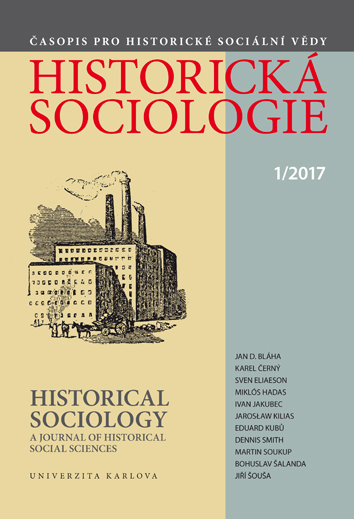Pohádkový Honza. Zamyšlení nad jedním z mentalitních symbolů české vesnice druhé poloviny 19. a prvních decennií 20. století
The Storybook Honza. Reflections on One of the Mental Symbols of the Czech Village in the Second Half of the 19th and the First Decades of the 20th Century
Author(s): Eduard Kubů, Jiří ŠoušaSubject(s): Essay|Book Review |Scientific Life
Published by: Univerzita Karlova v Praze, Nakladatelství Karolinum
Keywords: Czech Honza; archetype of the countryman; tales of emacipation; collective identity
Summary/Abstract: Knowledge of the fairy tales about Honza has been virtually universal in Czech society since the second half of the 19th century. Czech Honza belongs in the country that represents a whole other world with its own customs and traditions, different from the town, a marginalised world lagging behind the urban world, which is more often than not more refined, perceived in the country as more comfortable and easier to live in. The tales of Honza are tales of emancipation attuned in many respects to the core of the ideology of the agrarian movement of the late nineteenth and the beginning of the twentieth century as an emancipating ideology directed in the Czech milieu at the middle and lower-middle classes, that is farmers and peasants (the countryside being regarded as one big family). Honza is an archetype of the countryman, part of a collective identity whose symbolism acquires in the 20th century a dimension reflecting society, as a whole.
Journal: Historická sociologie
- Issue Year: 2017
- Issue No: 1
- Page Range: 127-136
- Page Count: 10
- Language: Czech

